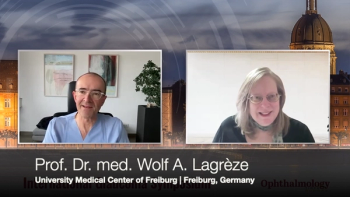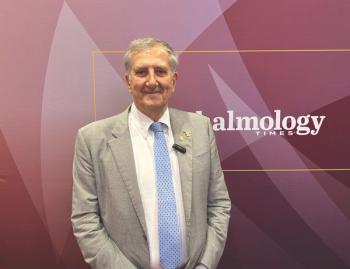
Elios Vision announces ELIOS registration in France
The technology is used to treat glaucoma at the same time as cataract surgery.
Elios Vision announces the registration of its ELIOS technology in France.
The technology, which is used to treat glaucoma at the same time as cataract surgery, does not require an implant and provides long-lasting results that may free patients and their doctors from the demands of drop therapy.1 ELIOS technology uses excimer laser energy to create microscopic openings in the trabecular meshwork to re-establish the natural flow of aqueous.
“The ELIOS procedure is filling the gap for patients who don’t need an aggressive surgical approach but are not doing well with drop therapy or would be much better off reducing their drop regimen,” said Ike Ahmed, MD, a Canada-based ophthalmologist and glaucoma expert. “ELIOS has been particularly impactful for cataract surgery in my practice. It just makes sense to combine ELIOS with cataract surgery when you’re already going into the eye.”
ELIOS provides an opportunity to address the most common cause of blindness during the most performed surgical procedure in the world with a safety profile similar to cataract surgery.2
“Multiple clinical studies across Europe have demonstrated that ELIOS has a strong efficacy and safety profile, with significant advantages over other forms of microinvasive glaucoma surgery,” said Elliot Friedman, chief executive officer of Elios Vision.
The technology is implant-free, meaning a faster learning curve for surgeons and less potential post-operative management for patients. In addition, ELIOS’ use of an excimer laser avoids thermal or mechanical trauma.1 The ten microchannels this technology creates have proven to be effective and long-lasting for up to 8 years.2
“The ELIOS technology appears to be a promising technology for lowering IOP and medication use in patients with glaucoma and has been used in other EU countries for several years. The fact that ELIOS uses a laser to enhance outflow is appealing as this makes the procedure less traumatic than conventional methods and avoids the use of implants,” said Prof Philippe Denis, glaucoma specialist, Hôpital de la Croix-Rousse, Lyon, France.
References
Töteberg-Harms et al. BMC Ophthalmology 2013
Riesen M, Funk J, Töteberg-Harms M. “Long-term treatment success and safety of combined phacoemulsification plus excimer laser trabeculostomy: an 8-year follow-up study”. Graefes Arch Clin Exp Ophthalmol. 2022 Jan 16.
Newsletter
Get the essential updates shaping the future of pharma manufacturing and compliance—subscribe today to Pharmaceutical Technology and never miss a breakthrough.




























